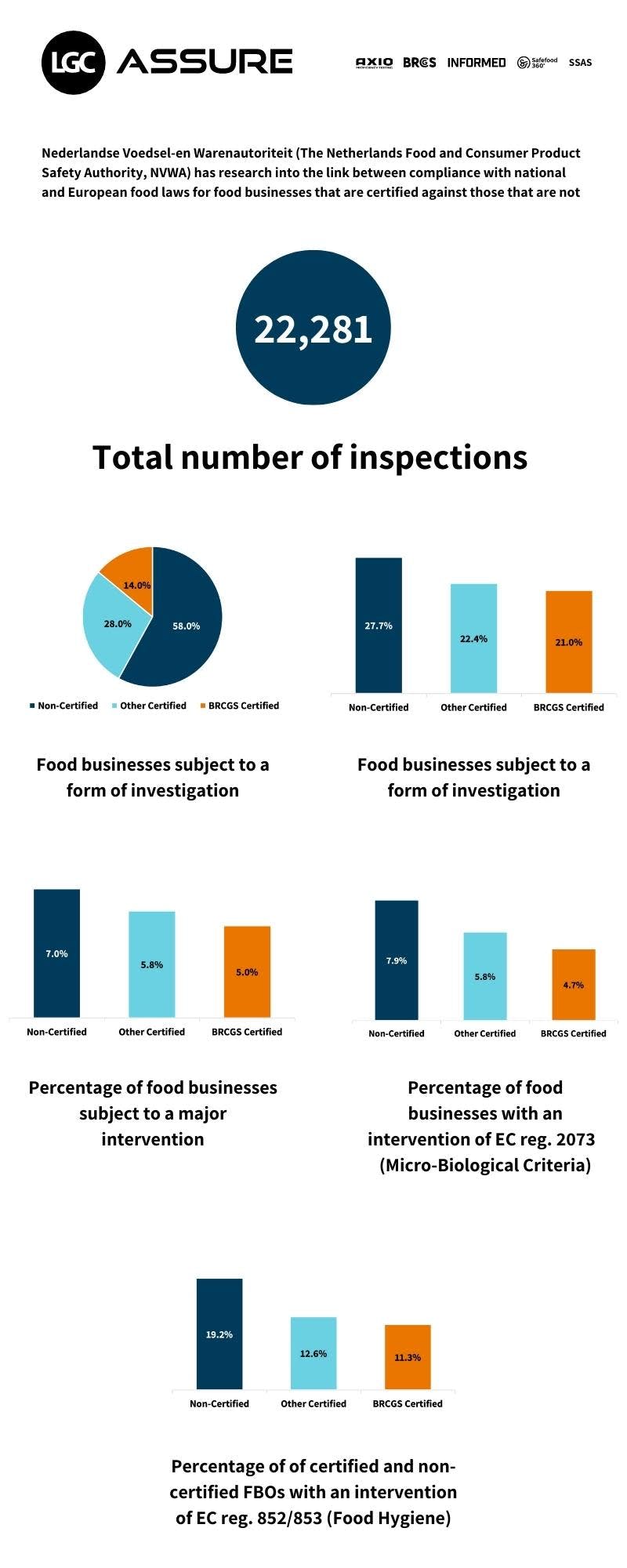Reduce regulatory and legal interventions
How BRCGS and regulatory agencies help to improve site performance for increased food safety
6 October 2022

Share this article
How food safety regulations have changed
Food Safety certifications have been developed over the last 20 years to provide a system of assurance that food from any source is safe, As a result, food businesses supplying all major brands and retailers must hold a certification to a recognized standard.
Can they be viewed solely as providing a license to operate, or do they provide additional value to a manufacturer?
BRCGS has worked with a number of regulatory agencies around the world to ensure that its supply chain assurance programmes support their policy aims. One such partnership with the Nederlandse Voedsel-en Warenautoriteit (The Netherlands Food and Consumer Product Safety Authority, NVWA) has explored the link between compliance with national and European food laws for food businesses that are certified against those that are not.
Food safety rules in the Netherlands are set in National and EU legislation. The latter is embodied in the General Food Law. The relevant EU Regulations are (EC) 852/2014, (EC) 853/2004 and (EC) No 2073/2005, which relate to Food Hygiene and micro-biological criteria and cover all stages of the production, processing, distribution and placing on the market of food intended for human consumption.
The data covers a period between 2015 and 2021, and reports on an average of 3,300 inspections per year from a population of 14,000 industrial business-to-business and cold store operators. In general, these companies produce, import, process, store, distribute and transport vegetable, animal (including fish) and composite foodstuffs. 2,500 of these FBOs are industrial food producers, of which 600 are approved by the European Commission for exporting.
Analysis of the data confirms that:
Food business operators with certification performed well and reported fewer non-compliances with the regulation than non-certified organisations. This applied to both minor and major interventions.
This was a common theme across all relevant regulations; (EC) 852/2014, (EC) 853/2004 and (EC) No 2073/2005.
Food businesses with BRCGS certification in place demonstrated greater regulatory compliance, when compared to an averaged score of other certification programmes.

BRCGS will continue to work in partnership with NVWA and other regulators. The aim is to place responsibility where it belongs, to strengthen mutual trust, to organize efficient information exchange, and to realise a more effective deployment of resources based on risk. In some economies, regulatory bodies are moving to a model of ‘earned recognition’ where the presence of private sector certification programmes can benefit the business in the form of lighter touch government oversight.
Choose BRCGS to support compliance
BRCGS global standards give brands an opportunity to improve performance across a range of KPIs. Plus, it can keep you on the right side of regulation.
Start your journey to certificationShare this article